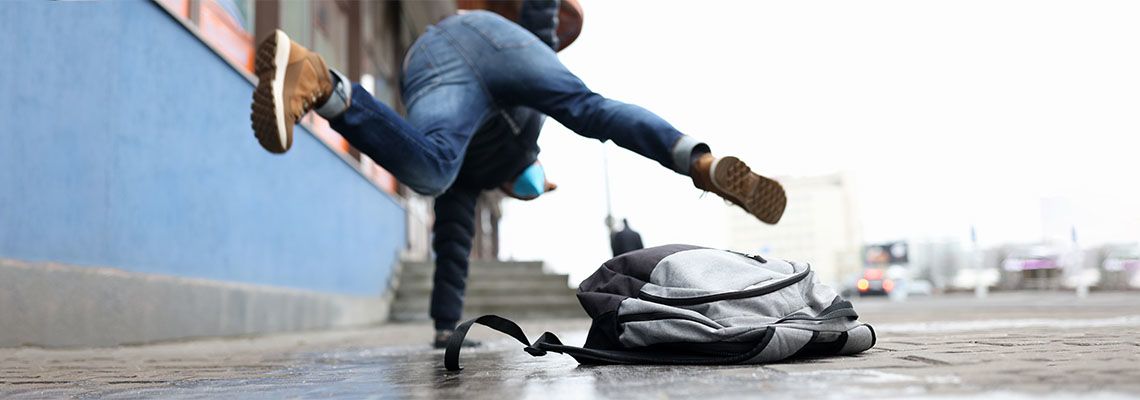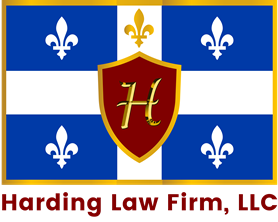Can I Sue a Business If I Was Hurt on Their Property?

Accidents happen, but what if you are injured on someone else's property? Whether you slipped on a wet floor at the grocery store or tripped over the uneven pavement outside a restaurant, knowing your legal rights and understanding when and how to sue a business for injuries sustained on their property is important.
Attorney Todd A. Harding is here with legal insights and practical advice to help you understand your options.
Understanding Premises Liability
Premises liability is a legal concept that holds property owners and tenants responsible for accidents and injuries occurring on their premises. If a business fails to maintain a safe environment, it may be liable for resulting injuries. This responsibility extends to the property's interior and exterior, including parking lots, sidewalks, and other common areas.
Businesses are required to regularly inspect their property for potential hazards. If their failure to do so causes an injury, they could be held accountable. This responsibility forces businesses to take reasonable steps to ensure their property is safe for customers and visitors.
Types of Injuries Covered
Different types of injuries can occur on business properties. Some of the most common include slip and fall accidents, which often result from wet floors, uneven surfaces, or debris left in walkways. Broken bones, sprains, and head injuries are just a few examples of the potential outcomes.
Other injuries might result from inadequate security measures, such as poor lighting or lack of surveillance in high-crime areas. In such cases, a victim might be able to claim that the business failed to provide a safe environment.
In some instances, injuries may occur due to structural issues, such as collapsing ceilings or faulty staircases. These types of injuries can be severe and may warrant legal action to recover damages.
Proving Negligence
An important element in a premises liability case is proving negligence. Negligence occurs when a property owner fails to act with the level of care that a reasonable person would in similar circumstances. To successfully sue a business for injuries sustained on their property, you must demonstrate that the business was negligent.
First, you must show that the business owed you a duty of care. This duty of care generally exists when you are on the property legally, usually as a customer or invited guest. Next, you must prove that the business breached this duty by failing to maintain a safe environment.
Finally, you need to show that this breach of duty directly caused your injury. This often requires medical records, eyewitness testimonies, and other evidence to establish a clear link between the business's negligence and your injury.
Potential Damages
If you successfully sue a business for injuries sustained on their property, you may be entitled to various types of compensation. Medical expenses, including hospital bills, medication costs, and physical therapy, are often recoverable.
You may also be able to claim lost wages if your injury prevents you from working. In some cases, victims receive compensation for pain and suffering, which covers the physical and emotional distress caused by the injury.
In more severe cases, punitive damages may be awarded. These damages are intended to punish the business for particularly egregious conduct and to deter similar behavior in the future.
In cases involving long-term or permanent disabilities, the compensation may also cover future medical expenses and loss of earnings. If the victim's quality of life has been significantly impacted, they might receive damages for loss of enjoyment of life.
Common Defenses Used by Businesses
Businesses often employ various defenses to avoid liability in premises liability cases. One common defense is that the hazard was open and obvious, meaning that a reasonable person would have noticed and avoided it.
Another defense is that the injured party was trespassing or was otherwise not authorized to be on the property. In such cases, the business may argue that it did not owe the injured party a duty of care.
Businesses might also claim that the injured party was partially or wholly responsible for their injury. This defense is particularly relevant in states like Georgia, which follow comparative negligence principles.
Another tactic businesses use is to argue that the hazard was temporary and that they did not have enough time to fix the situation before the accident. To demonstrate their commitment to safety and due diligence, they may also present evidence that regular inspections and maintenance were conducted
Filing a Lawsuit
If negotiations with the business or its insurance company fail, you may need to file a lawsuit to recover your damages. This process begins with filing a complaint in the appropriate court.
Your attorney will guide you through the litigation process, which generally includes discovery, depositions, and potentially a trial. While most cases settle before reaching trial, being prepared for litigation is essential.
Filing a lawsuit can be complicated and time-consuming. It often requires extensive documentation and the following of specific legal procedures. It is important to have a lawyer who understands the legal system and can gather and present evidence effectively.
Premises Liability Laws in Georgia
Georgia's premises liability laws stipulate that property owners must exercise ordinary care to keep their premises safe for visitors. Any business that fails to do so may be held liable for injuries. Ordinary care includes regular inspections, prompt repairs of known hazards, and clear signage to warn visitors of potential dangers.
Georgia also follows the principle of comparative negligence, meaning that if you are partially at fault for your injury, your compensation may be reduced accordingly.
For instance, if you were texting while walking and failed to notice a wet floor sign, the court might find you partially responsible for your injury. In such cases, your compensation will be adjusted based on your degree of fault.
In Georgia, the statute of limitations typically gives you two years from the date of injury to initiate legal action. However, if the injury involves a government entity or public property, different rules and deadlines may apply, such as the requirement to file a notice of claim within a shorter period.
Georgia law distinguishes between different types of visitors, such as invitees, licensees, and trespassers, which can affect the level of duty a property owner owes. Invitees, such as customers, are owed the highest duty of care, while trespassers are owed the least. Licensees who enter the property for their own purpose with the owner's consent fall somewhere in between.
Do This Immediately After an Injury
If you have been injured on a business property, here's how to protect your rights:
Seek medical attention immediately. Even if your injuries seem minor, it is essential to get a professional evaluation.
Report the incident to the business owner or manager.
Document the details of the accident, including the time, location, and any witnesses. Photographs of the scene and of your injuries can serve as valuable evidence.
Consult with an experienced attorney who can help you understand your legal options and guide you through the process of filing a claim.
Ready to Take Legal Action?
Attorney Todd A. Harding was selected to Rising Stars for 2016 and recognized for his excellence by his peers. He also earned the 10 Best Client Satisfaction Criminal Law Attorneys award for 2016 and was named one of the Top 100 Criminal Defense Attorneys in 2022. Trusted by hundreds of clients since 2006, Attorney Harding pays attention to details and excels at crafting resolutions and strategies.
If you have been injured on a business property, reach out to The Harding Law Firm, LLC, today. With years of experience and a commitment to client satisfaction, Attorney Todd A. Harding can help you understand your legal options and work toward a favorable resolution.

